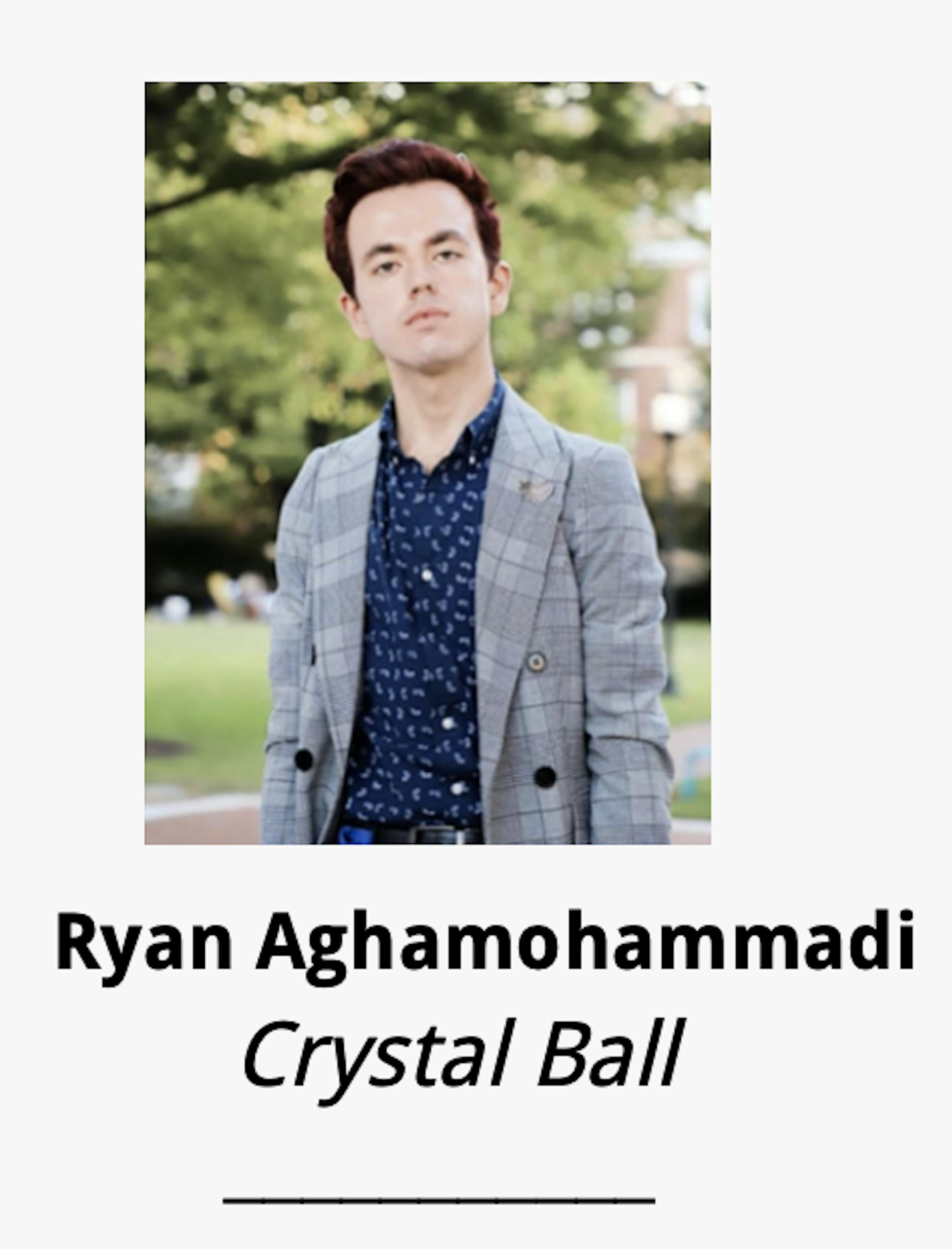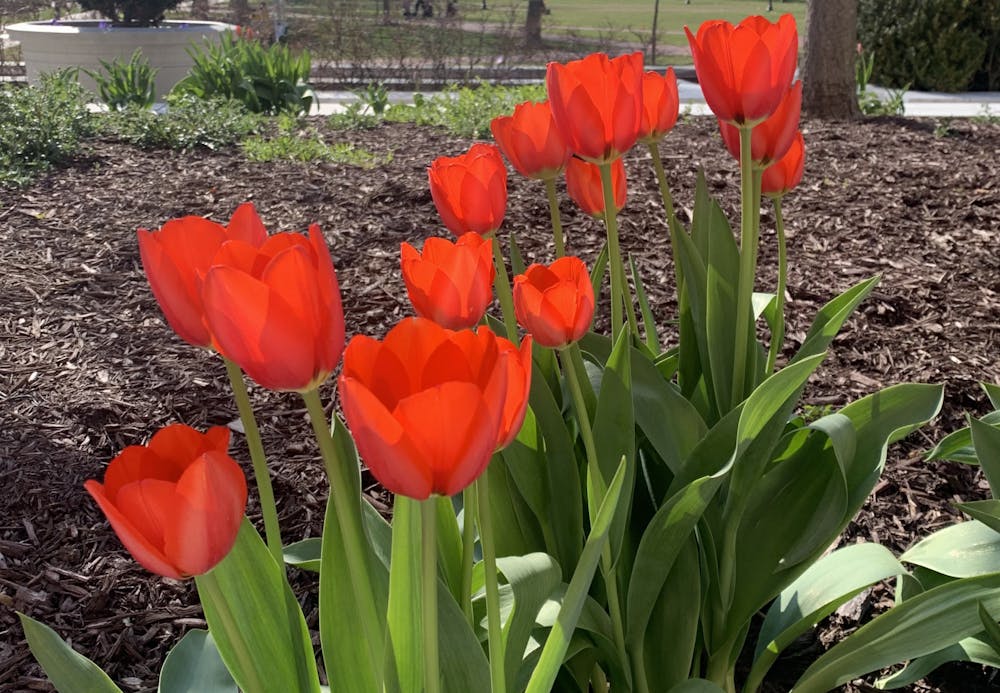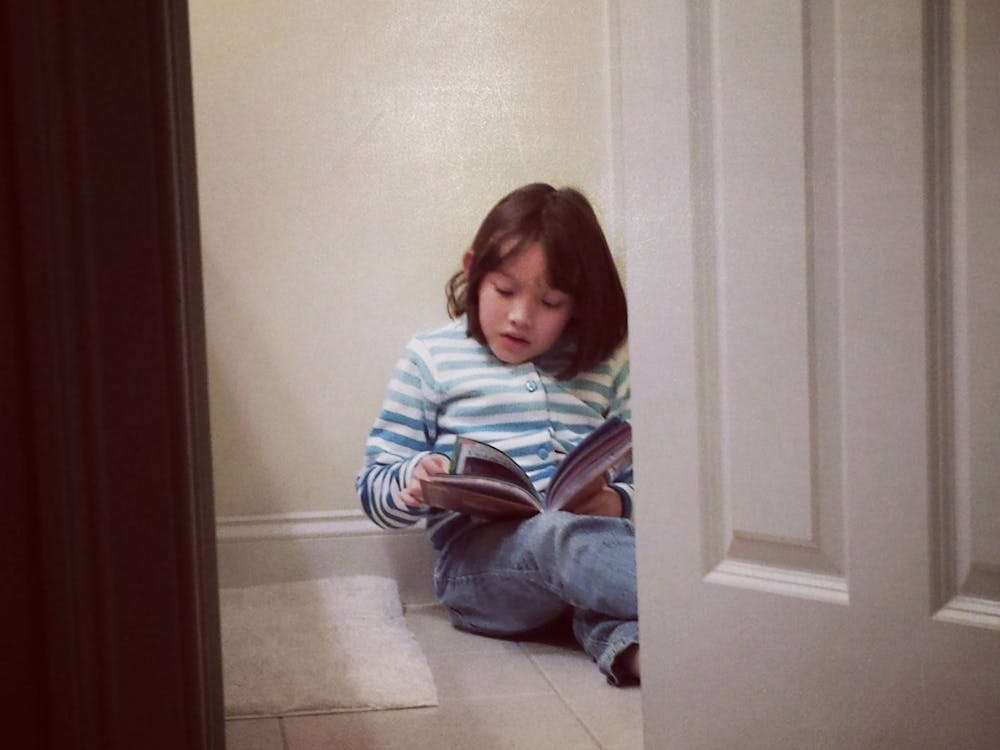
I can’t escape them, flowers — snowdrops, daffodils, tulips, dogwoods, other ones with sheaths of pink or jade. Walking to campus, to the grocery store, to the park — they’re ubiquitous, the shape of blooms worldwide. I can’t help but pay attention.
There’s something about a good garden that jolts me, makes me feel that the inside and outside parts of me have suddenly wedged together, everything clicking together. Maybe it’s the symmetry, that each bloom scaffolds its petals carefully, geometrically. Maybe it’s the colors; they’re so different from the concrete.
I can’t think of any fairy tale flowers, save for the Beast’s rose, imprisoned under its glass dome, petal by petal ruining everything. Maybe there’s another, more obvious one eluding me. I don’t know.
I’ve hung garlands of pink and white roses against one of the walls in my bedroom and, as the weather’s getting warmer, the stems have lifted under the scotch tape. Every so often a garland will come slinking to the floor, a blank column coloring in the space the garlands leave behind, revealing more and more plaster. I’m out of tape.
What will happen when they’ve all fallen down? I imagine the walls decaying, the apartment building groaning as it decomposes to old brick and stone. I imagine the sound of glass breaking, of rose petals burning on the wind.
Each day looms like an iron cloud on the horizon; I keep waiting for it all to drop. The past year, I’ve felt dissatisfied in a lot of ways, thinking that I had lost some crucial part of myself I cannot name, and not really because of the pandemic either.
It’s taken a while to realize and longer to accept that my unfair expectations for myself have exceeded how fast I can improve; they’ve stopped me from enjoying life as much as I could be. I’ve shied away from writing, feeling like I’ve nothing, nothing at all to say. From cooking and baking, finding little joy in the confections I used to make. From friends, too, always a little afraid I wasn’t good enough for them.
Maybe I just had too much time to think, waylaid back home in the middle of the woods, my constant fairy tale motif. That, too, seems like a convenient answer. The pandemic forced me to attend to the often harsh expectations I have of myself. I realized that unless I do more than my best, better than perfect, I feel as though I do not deserve good things. It has exhausted me. I am exhausted. Now, what to do with that realization?
Outside the window, I see a crow land on a bough, and then another. In the lawn, dandelions fall apart and end up everywhere, everywhere. But, what about Virginia Woolf’s flowers, of Mrs. Dalloway, who said, “she’d buy the flowers themselves?” Must we do everything ourselves? Must I do everything myself? Why do we do everything ourselves?
In the eponymous novel, Mrs. Dalloway wanders the streets of London, ruminating on her past, wondering if she’s done enough in her life. Woolf being my favorite author, I don’t think it actually matters; what matters is that she buys the flowers herself, that she keeps trying, that she believes there’s more she can do, even something small. Romanticizing the past just shuffles closer the ways we tend to disappoint ourselves; we remember things differently, not always better, than they were.
To be candid, even now, returning to campus always seemed such a faraway thing. The two semesters I spent at home felt like a fermata, an unspecified rest, and I kept telling myself that when I got back to Baltimore I would feel the push, the momentum I felt I was lacking — that it would be enough to finish whatever transformation I was undergoing.
And I did come back: I set up my room, bought coffee at all my favorite haunts, walked through rows of blushing dogwoods, got caught in the rain one too many times and studied in the depths of the library, clicking at my keyboard fractionally louder than appropriate (sorry).
There’s only a few weeks of the semester left. I’ve returned and have been returning, sweeping away the debris, finding what I left, what left me — the actual memory of who I was a year ago. It’s not for me anymore; who I am now is not who I was then. It’s terrible and wonderful; it’s walking in not to find the glass-cased rose dead, but that it never existed, that the castle will not crash down around you. It’s realizing that you have to buy the flowers yourself.
Perhaps our memories have seasons; each history flares when it desires to be remembered again, before it is forever forgotten. The more you want to remember what once was, the more you forget. Whatever I feel hasn’t clicked cannot be found, cannot be replaced. It never was.
There is no finding something that never existed in the first place. I clung to an imaginary, a vision of what I thought I had remembered to be the rhythm of my life and not its actual pulse. It’s bitter work, then, admitting nothing was broken, no rose slowly withering away. Instead, you were just remembering it wrong.
But we don’t remember everything wrong. Not the people in my life whom I love and who love me. Not the things I know are meant for me, not the coffee, or the books or the flowers in the garden. Not the wishes, the dreams I hardly admit to myself. Not the hope that one day things will be better. These I was remembering correctly; they’re all for me.
I’ll buy the flowers myself, not because I have to, but because I can.
Ryan Aghamohammadi is a junior from Woodbury, Conn. studying Writing Seminars. His column uses the occult and the supernatural to cast a light on his ongoing journey of self-discovery.





